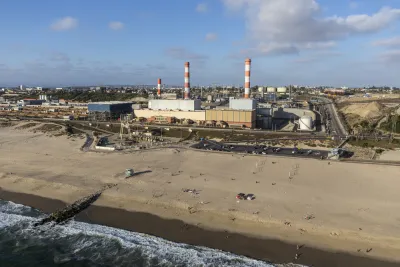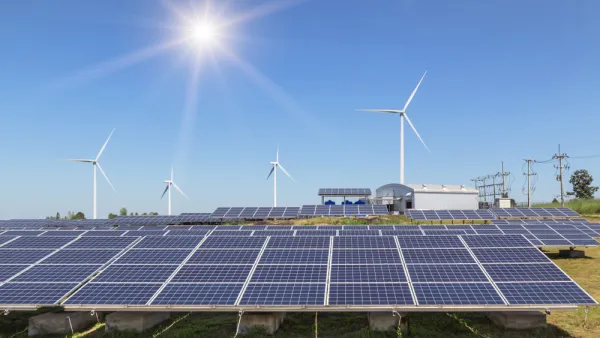The latest edition of the Rhodium Group's "Taking Stock" report accounts for the uncertainties of Covid-19 recovery while charting the trends in U.S. greenhouse gas emissions.

Rhodium Group recently published the latest edition on annual outlook for U.S. greenhouse gas (GHG) emissions under current federal and state policies.
"This current policy baseline provides a starting point for assessing where additional work—in the form of federal, state, or corporate action—is necessary to achieve mid- and long-term US GHG emission reduction goals," according to an article that shares the new report.
In a bit of positive news that might surprise, the country is on track to reduce GHG emissions 20 percent to 22 percent below 2005 levels by the year 2025. "Looking ahead to 2030, the US is on track to achieve emission reductions anywhere from 20% to 26% below 2005 levels, absent additional action," adds the article.
The report accounts for uncertainties surrounding the country's ongoing, uneven recovery from the Covid-19 pandemic. Given that uncertainty, the final tally in 2030 could range anywhere from 17 percent to 30 percent reductions from 2005 levels, according to the report.
Rhodium Group's ClimateDeck data platform includes baseline scenarios—including GHG emissions and underlying sectoral data—for the nation and all 50 U.S. states. The source article below also includes trend data for economic sectors like energy production, transportation, industry, and buildings.
Here are the two brief summaries, with more detail included in the source article, of the predicted emission trends in two of the sectors with most direct relevance to the nations planners:
- Transportation: "After a brief post-pandemic rebound, transportation emissions decline modestly through 2030, driven by fuel economy improvements in passenger vehicles and a shift toward electric vehicles (EVs)."
- Buildings: "Building efficiency improves but emissions from residential and commercial buildings remain effectively flat. Low-cost natural gas, increasing building square footage, and economic and population growth put upward pressure on building emissions, even while state policies make homes and businesses more efficient."
FULL STORY: Taking Stock 2021: US Emissions Outlook Under Current Policy

Analysis: Cybertruck Fatality Rate Far Exceeds That of Ford Pinto
The Tesla Cybertruck was recalled seven times last year.

National Parks Layoffs Will Cause Communities to Lose Billions
Thousands of essential park workers were laid off this week, just before the busy spring break season.

Retro-silient?: America’s First “Eco-burb,” The Woodlands Turns 50
A master-planned community north of Houston offers lessons on green infrastructure and resilient design, but falls short of its founder’s lofty affordability and walkability goals.

Test News Post 1
This is a summary

Analysis: Cybertruck Fatality Rate Far Exceeds That of Ford Pinto
The Tesla Cybertruck was recalled seven times last year.

Test News Headline 46
Test for the image on the front page.
Urban Design for Planners 1: Software Tools
This six-course series explores essential urban design concepts using open source software and equips planners with the tools they need to participate fully in the urban design process.
Planning for Universal Design
Learn the tools for implementing Universal Design in planning regulations.
EMC Planning Group, Inc.
Planetizen
Planetizen
Mpact (formerly Rail~Volution)
Great Falls Development Authority, Inc.
HUDs Office of Policy Development and Research
NYU Wagner Graduate School of Public Service




























